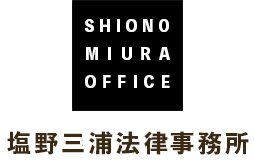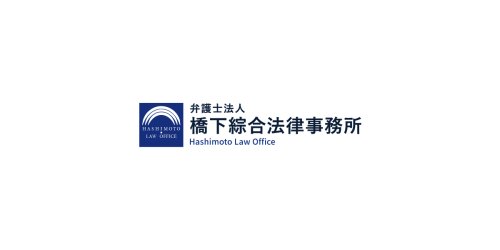Best Land Use & Zoning Lawyers in Japan
Share your needs with us, get contacted by law firms.
Free. Takes 2 min.
Free Guide to Hiring a Real Estate Lawyer
Or refine your search by selecting a city:
List of the best lawyers in Japan
About Land Use & Zoning Law in Japan
Land use and zoning laws in Japan are critical for organizing the country's economic and social activities, given its limited land resources and high population density. These laws govern how land within particular jurisdictions can be used, whether for residential, commercial, industrial, or public purposes. They aim to ensure a balanced and sustainable development while protecting the environment and cultural heritage. These laws can vary significantly across regions and cities, reflecting local needs and characteristics.
Why You May Need a Lawyer
A lawyer specializing in land use and zoning in Japan can provide invaluable assistance in various situations, such as:
- Understanding complex zoning regulations and their impact on property development projects.
- Advising on property purchase and investment strategies in line with zoning laws.
- Resolving disputes related to land use, such as boundary disputes or violations of zoning laws.
- Representing individuals or businesses in hearings or appeals before zoning boards or relevant authorities.
- Facilitating negotiations with governmental bodies or other stakeholders in land use approvals and compliance matters.
Local Laws Overview
Japan’s land use and zoning laws are primarily governed by the City Planning Act and the Building Standards Act. Key aspects include:
- City Planning Act: This law outlines regulations for urban planning, land use zoning, and local development. It is crucial for setting land use patterns to promote orderly city expansion.
- Building Standards Act: This provides regulations on building construction and renovation, dictating building height, floor-area ratios, and other structural criteria.
- Zoning Designations: Land is classified into different zones, such as residential, commercial, industrial, and green areas, each with specific sets of regulations governing what can be built and how it can be used.
- Ecological Preservation Laws: Certain areas might have additional protective statuses, limiting development to conserve Japan's natural environment.
Frequently Asked Questions
What is the process of acquiring zoning permits in Japan?
The process typically involves submitting an application to the local government office, including detailed plans and proposals, and may require approvals from multiple departments.
Can zoning laws change, and how would that affect me?
Yes, zoning laws can change due to shifts in urban planning policies, and such changes can affect property values and development potential. Staying informed or consulting with a legal expert is advisable.
What happens if I build something that violates zoning laws?
You may be subject to penalties, including fines or orders to dismantle or alter unauthorized constructions, and should seek legal counsel for resolving such issues.
Are there special zoning laws for historic areas in Japan?
Yes, historical and cultural preservation areas have stricter controls to protect buildings and landscapes, ensuring any development maintains the area's historical integrity.
How do zoning laws apply to agricultural land?
Zoning laws often restrict agricultural land to prevent conversion to non-agricultural uses, supporting Japan's food security objectives. Exceptions or special permits may apply.
What role do local community opinions play in zoning decisions?
Community opinions can influence decisions, especially through public hearings and consultations, ensuring that local needs and concerns are considered.
Is it possible to request a zoning change?
Yes, but it requires a formal application process and justification. The decision is made by local authorities considering various planning and community factors.
How are environmental considerations integrated within zoning laws?
Environmental considerations are increasingly factored into zoning regulations, with assessments required for projects that might impact ecological features.
Can I dispute a zoning decision made by local authorities?
Yes, there are appeal processes available if you believe a decision negatively impacts your property rights or interests. Legal representation can be very helpful in such cases.
What should I do if I want to develop in a multiple-use zone?
Focus on obtaining a comprehensive understanding of the permitted uses in such zones, which may accommodate a mix of residential, commercial, and industrial uses, and adapt your development plans accordingly.
Additional Resources
For further information and assistance, consider reaching out to these resources:
- Local Government Offices: They can provide detailed information on zoning laws and procedures in specific areas.
- Ministry of Land, Infrastructure, Transport and Tourism (MLIT): This governmental body oversees national policies on land use and zoning.
- Professional Associations: Organizations such as Japan Federation of Bar Associations may help you find a qualified legal professional.
- Urban Planning and Development Consultancies: These can also provide tailored advice and services.
Next Steps
If you are in need of legal assistance regarding land use and zoning in Japan, start by identifying your specific needs and gathering all relevant documentation. Contact a lawyer or legal firm specializing in zoning law who can evaluate your situation and provide expert guidance. It’s crucial to be proactive, especially if time-sensitive projects or potential legal disputes are involved.
Lawzana helps you find the best lawyers and law firms in Japan through a curated and pre-screened list of qualified legal professionals. Our platform offers rankings and detailed profiles of attorneys and law firms, allowing you to compare based on practice areas, including Land Use & Zoning, experience, and client feedback.
Each profile includes a description of the firm's areas of practice, client reviews, team members and partners, year of establishment, spoken languages, office locations, contact information, social media presence, and any published articles or resources. Most firms on our platform speak English and are experienced in both local and international legal matters.
Get a quote from top-rated law firms in Japan — quickly, securely, and without unnecessary hassle.
Disclaimer:
The information provided on this page is for general informational purposes only and does not constitute legal advice. While we strive to ensure the accuracy and relevance of the content, legal information may change over time, and interpretations of the law can vary. You should always consult with a qualified legal professional for advice specific to your situation.
We disclaim all liability for actions taken or not taken based on the content of this page. If you believe any information is incorrect or outdated, please contact us, and we will review and update it where appropriate.
Browse land use & zoning law firms by city in Japan
Refine your search by selecting a city.















